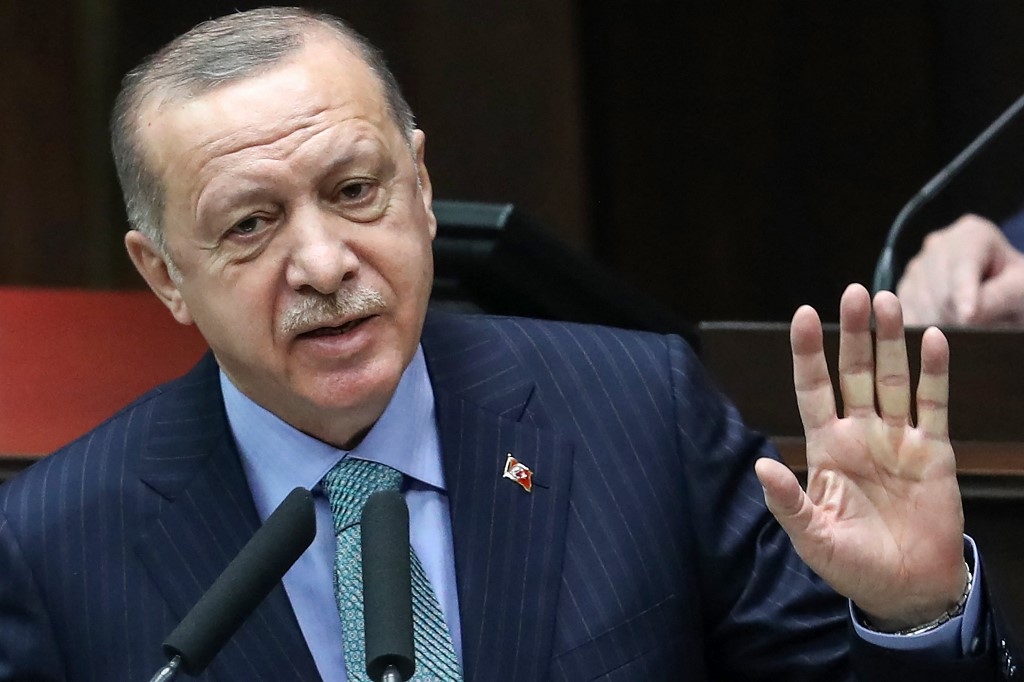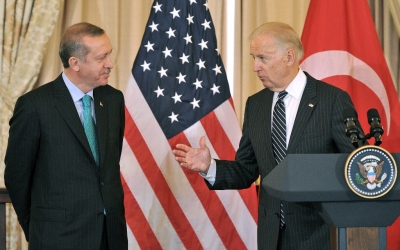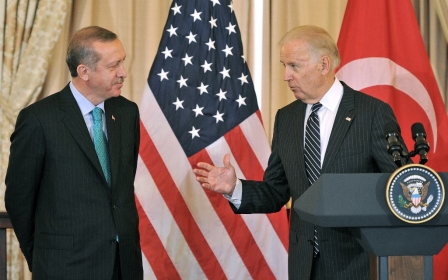US lawmakers ask Biden to push Turkey on 'human rights abuses'

One hundred and seventy bipartisan members of the US House of Representatives have issued a letter to the State Department urging the Biden administration to hold the Turkish government accountable for "human rights abuses" taking place in the Nato country.
In a letter sent on 26 February, but made public on Monday, the lawmakers called out the Turkish president specifically for "democratic backsliding", asking the Biden administration to place more concern on Turkey's domestic issues.
'President Erdogan has strained the relationship between our nations'
- Letter sent from US House to State Department
"As the Biden administration formulates its foreign policy in regard to Turkey, we ask that you aim to address the troubling human rights abuses taking place under President Recep Tayyip Erdogan," the letter reads.
"Turkey has long been a key United States ally. Unfortunately, President Erdogan has strained the relationship between our nations," it continued. "Strategic issues have rightfully received significant attention in our bilateral relationship, but the gross violation of human rights and democratic backsliding taking place in Turkey are also of significant concern."
While a significant chunk of House members, both Republicans and Democrats, signed the letter, official leadership from both parties refrained from participating.
New MEE newsletter: Jerusalem Dispatch
Sign up to get the latest insights and analysis on Israel-Palestine, alongside Turkey Unpacked and other MEE newsletters
Signers did, however, include Representatives Greg Meeks, the Democratic chairman of the House Foreign Affairs Committee, and Michael McCaul, the panel’s ranking Republican member.
A frayed relationship
Days before the letter was sent, Erdogan released a video address to Twitter, where he insisted that the common interests of Turkey and the United States outweigh their differences. The Turkish President stressed that Turkey wants to improve cooperation with Washington "on a win-win basis".
But relations have frayed over a host of issues in recent years, including Turkey’s purchase of Russia's S-400 missile defence system and US support for the Kurdish YPG militia in Syria, dubbed a terrorist group by Turkey.
Both the White House and Congress have expressed repeated concern over rights and freedoms in recent weeks.
Upon taking office, the Biden administration swiftly rebuked Turkey, urging the release of prominent civil society leader Osman Kavala. The administration also criticised homophobic rhetoric in a crackdown on student demonstrators.
In the February letter, lawmakers highlighted such cases, accusing Erdogan and his party of weakening Turkey’s judiciary, installing political allies in key military and intelligence positions, and wrongfully imprisoning political opponents, journalists and members of minority groups.
"Since 2016, more than 80,000 Turkish citizens have been imprisoned or arrested and more than 1,500 nongovernmental organizations have been closed to suppress political opposition," the lawmakers wrote.
They also highlighted "dubious" criminal charges against three Turkish staff employed by the US State Department, urging the administration to prioritise their cases, including "their immediate release and dismissal of all charges".
"While it is in our mutual interest for the United States and Turkey to remain strategic allies and repair the rifts between us, we believe changes to President Erdogan and his party’s behavior are vital to seeing that relationship restored," the lawmakers wrote.
"We hope that the State Department under your leadership and the Biden administration more broadly will elevate human rights and democratic backsliding concerns in our bilateral relations."
Middle East Eye delivers independent and unrivalled coverage and analysis of the Middle East, North Africa and beyond. To learn more about republishing this content and the associated fees, please fill out this form. More about MEE can be found here.





